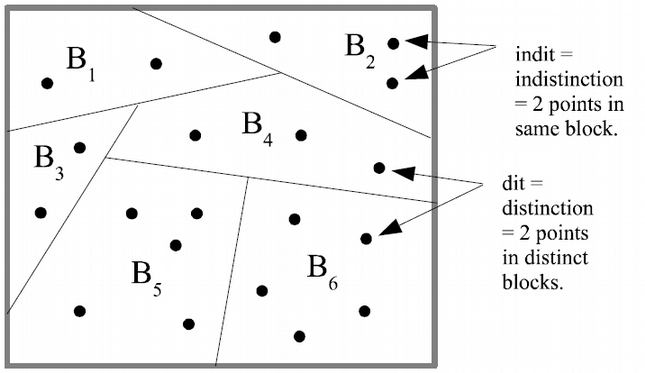
This book draft is an introduction to the logic of partitions on a set as well as the (quantum) logic of partitions (direct-sum decompositions or DSDs) on a vector space. Partitions of a set are categorically dual to subsets of a set. Thus the logic of partitions is, in that sense, the dual to the Boolean logic of subsets (usually presented as the special case of propositional logic). Since partitions can be seen as the inverse image partitions of random variables or numerical attributes (without the actual values but retaining the information as to when the values are the same or different), partition logic is the logic of random variables or numerical attributes (abstracted from the actual values). On the lattice of partitions of an arbitrary unstructured set, there is a rich algebraic structure of dual operations of implication and co-implication–resembling a non-distributive version of Heyting and co-Heyting algebras.
Subsets linearize to subspaces of a vector space and the usual quantum logic is the logic of the (closed) subspaces of the Hilbert spaces used in quantum mechanics (QM). Set partitions linearize to DSDs of a vector space so the logic of partitions linearizes to the logic of DSDs that can then be specialized to the Hilbert spaces of QM. Since each diagonalizable linear operator, e.g., the observables of QM, on a vector operator determines a DSD of eigenspaces so the quantum logic of DSDs is the logic of observables (abstracted from the actual eigenvalues).